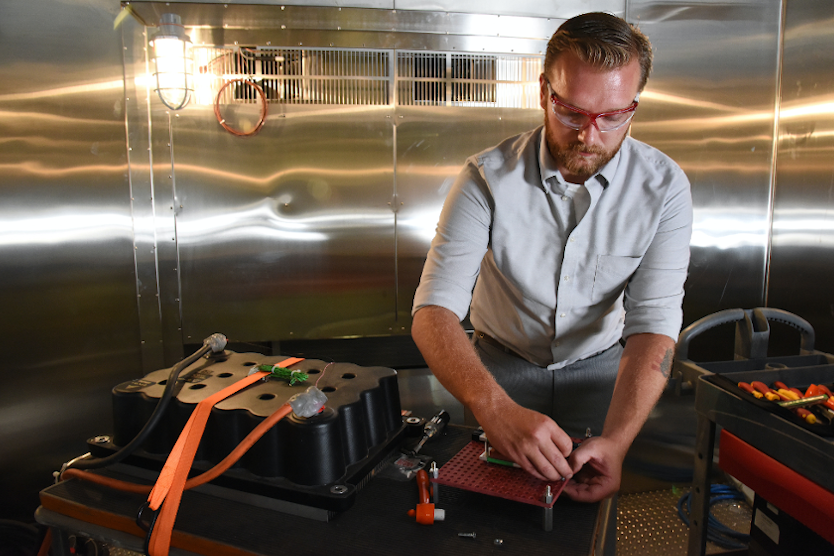
The concept by SIMBA involves the integration of a sodium metal anode in a sodium-free assembly architecture, the use of a conductive solid electrolyte and an innovative iron-based cathode material.
© Photo by Science in HD on Unsplash
Electrochemical storage systems currently offer the best storage solutions to support Germany’s transition to renewable energy. And of these the sodium-solid battery is the current frontrunner for the next generation of stationary storage systems, being low-cost, environmentally-friendly and stable.
To this end, the European Union is supporting a research project called SIMBA (“Sodium-Ion and sodium Metal Batteries for efficient and sustainable next-generation energy storage”) with eight million euros within the Horizon funding programme.
SIMBAA will be led by the Technical University of Darmstadt and includes an international consortium of partners: Fraunhofer ISE, the Karlsruhe Institute of Technology (KIT), the Helmholtz Institute Ulm, University of Birmingham (UK), University of Warwick (UK), Uppsala University (Sweden), the Research Institute CEA (France), the Institute for Energy Technology IFE (Norway) and the Slovak Academy of Sciences, as well as a board of advisors from industry.
The original concept that SIMBA hopes to bring to market involves the integration of a sodium metal anode in a sodium-free assembly architecture, the use a conductive solid electrolyte and an innovative iron-based cathode material, among other innovations.
The materials used in the new batteries are affordable, widely-available and sustainable, as well as recyclable, thereby reducing supply risks and environmental impact – issues which currently affect lithium-ion batteries.
The Department of Materials and Earth Sciences at the TU Darmstadt will research and develop innovative battery anode materials, while the Department of Chemistry will “characterize transport phenomena across the materials and interfaces experimentally by means of in-situ solid state nuclear magnetic resonance”, according to a university press release.


